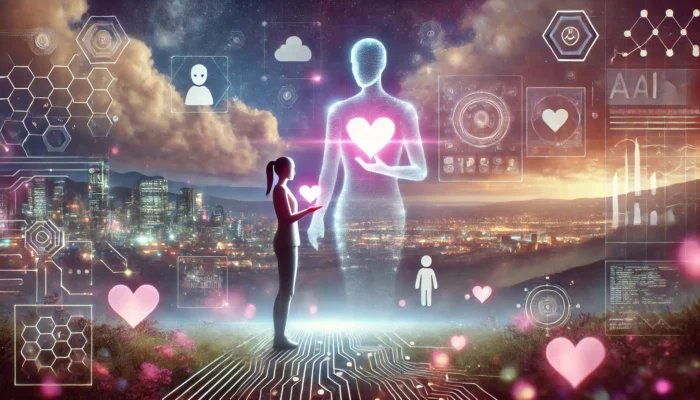AI Companions: Are Digital Relationships the Future?
The emotional tech (AI) revolution that’s blurring the line between machine and meaning.
🌐 Introduction: The New Age of Love & Loneliness
In 2025, AI companions are no longer science fiction—they’re part of daily life. From apps like Replika to humanoid AIs with emotional intelligence, people are increasingly turning to machines for friendship, therapy, and even love. But the question remains: Are we truly ready for digital relationships?
🤖 What Are AI Companions?
AI companions are emotionally responsive bots or avatars that use machine learning, natural language processing, and personality modeling to interact with humans like real friends—or lovers.
Types of AI Companions:
- Chat-based bots (Replika, Wysa)
- Virtual partners (Anima, Character.AI)
- Robotic companions (Lovot, Sophia by Hanson Robotics)
- Voice-based assistants (like OpenAI’s voice agents)
💔 Why Are People Turning to AI for Emotional Support?
1. Rising Loneliness
A 2024 report by the WHO revealed a 32% rise in urban loneliness post-pandemic. AI companions offer comfort without judgment.
2. Safe Space to Express
People can vent, cry, flirt, or fantasize without fear of rejection, betrayal, or real-world drama.
3. 24/7 Availability
AI companions are always there, never tired, and adapt to your emotional needs with each conversation.

⚠️ The Dark Side of Digital Love
Despite their convenience, AI relationships come with real risks:
1. Emotional Dependency
Users can become attached to non-living beings, leading to isolation from real human bonds.
2. Privacy Concerns
Your deepest emotions and secrets are stored on servers—are they truly safe?
3. Lack of Reality Check
AI companions often mirror your thoughts to please you—offering no growth, no challenge, no real truth.
🧠 Psychologists Speak: Is This Healthy or Harmful?
Experts are divided.
Dr. Riya Sharma, Clinical Psychologist, says:
“AI companions may offer temporary relief, but long-term use without human interaction can deepen emotional numbness.”
However, some therapists now recommend AI journaling bots as emotional practice tools—especially for introverts and trauma survivors.
🛠️ The Tech Behind AI Companions
Powered by:
- GPT-based NLP models (like ChatGPT)
- Emotion recognition software
- Adaptive machine learning
- Deepfake voice & face rendering (in advanced versions)
Some even simulate touch and gaze detection using robotics and sensors.
🔮 Future of Relationships: What’s Next?
By 2030, experts predict:
- AI marriage laws might be debated
- Digital companions could get legal identity
- VR + AI fusion will enable fully immersive virtual partners
Crazy? Maybe. But so was Tinder in 2010.

🧭 Should You Try an AI Companion?
Here’s a quick self-checklist:
✅ Feeling emotionally overwhelmed?
✅ Need someone to talk to 24/7?
✅ Want to reflect on yourself without fear?
Then a well-reviewed AI companion can be helpful—as long as you stay grounded in the real world.
📌 Final Thoughts: Is AI Replacing Humans or Helping Them?
AI companions are a reflection of our evolving needs. They’re not here to replace love—but to remind us of how much we crave connection. The key is balance.
Use AI to enhance your emotional well-being, not escape from it.






Post Comment